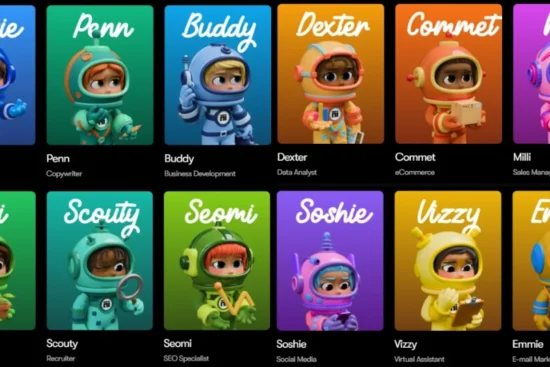
Artificial intelligence (AI) is revolutionizing industries, shaping decisions, and impacting billions of lives. Yet, as AI becomes increasingly pervasive, it raises critical ethical, legal, and societal questions. From algorithmic bias to accountability in decision-making, deploying AI responsibly has never been more crucial. AI governance platforms are emerging as essential tools to address these challenges, ensuring AI systems align with ethical standards and societal values.
The Need for AI Governance
AI governance refers to the frameworks, policies, and tools that guide the development, deployment, and oversight of AI systems. Its primary goal is to ensure AI benefits humanity while minimizing risks. With the rapid integration of AI into sensitive domains such as healthcare, finance, and criminal justice, governance platforms play a pivotal role in:
- Ensuring Fairness: Preventing bias in AI algorithms to uphold fairness in decision-making.
- Maintaining Transparency: Providing clarity on how AI systems function and make decisions.
- Enhancing Accountability: Assigning responsibility for AI outcomes to relevant stakeholders.
- Ensuring Compliance: Meeting legal and regulatory standards.
Key Principles of AI Governance
Effective AI governance platforms are built on foundational principles that balance innovation with ethical considerations. These include:
- Transparency: AI systems must be explainable and auditable, enabling stakeholders to understand their workings and limitations.
- Fairness and Non-Discrimination: AI should not perpetuate or amplify biases, ensuring equitable treatment for all users.
- Accountability: Developers and operators must take responsibility for the impact of AI systems.
- Safety and Security: Robust measures are necessary to prevent misuse, cyberattacks, or unintended consequences.
- Privacy: Ensuring data protection and respecting user confidentiality is paramount.
- Human-Centric Design: AI should augment human capabilities, not replace them entirely or undermine human dignity.
The Role of AI Governance Platforms
AI governance platforms are dedicated solutions that facilitate ethical AI deployment. They serve as comprehensive hubs, offering tools to monitor, assess, and improve AI systems. Key functions include:
1. Bias Detection and Mitigation
AI governance platforms use advanced analytics to identify biases in training data or model outcomes. They offer mechanisms to recalibrate algorithms, ensuring impartial decision-making. For instance, tools like IBM Watson OpenScale provide real-time insights into AI performance and fairness metrics.
2. Explainability and Interpretability
Many AI models, especially deep learning systems, are criticized for being “black boxes.” Governance platforms incorporate explainability tools that demystify AI decision-making, enabling users to trust and verify outcomes.
3. Ethical Risk Assessment
Governance platforms allow organizations to assess ethical risks associated with AI deployments. By simulating scenarios and identifying potential issues, they help in preemptive troubleshooting.
4. Compliance Management
As AI regulations evolve globally, governance platforms help organizations stay compliant with standards like GDPR, CCPA, or sector-specific guidelines. They provide automated tools to audit AI systems against regulatory requirements.
5. Continuous Monitoring and Auditing
AI systems are dynamic, learning and adapting over time. Governance platforms enable ongoing monitoring to detect performance drifts, anomalies, or emerging risks.
6. Stakeholder Engagement
Governance platforms promote inclusive decision-making by engaging diverse stakeholders, including ethicists, policymakers, and affected communities. This ensures broader societal concerns are integrated into AI systems.
Challenges in Implementing AI Governance
While AI governance platforms are essential, they face several challenges:
1. Lack of Universal Standards
The absence of universally accepted AI governance standards creates ambiguity for organizations operating across borders. This makes compliance a complex and fragmented process.
2. Balancing Innovation and Regulation
Excessive regulation can stifle innovation, while leniency can lead to irresponsible AI deployment. Striking the right balance is a persistent challenge.
3. Resource Constraints
Developing and maintaining governance platforms require significant investment in terms of time, expertise, and technology, which may be a barrier for smaller organizations.
4. Evolving AI Ecosystem
AI technologies evolve rapidly, often outpacing governance frameworks. Keeping platforms updated to address emerging challenges is a constant struggle.
5. Bias in Governance
Even governance tools themselves are not immune to bias. Ensuring the neutrality and inclusivity of these platforms is an ongoing concern.
Examples of AI Governance in Action
Several organizations and platforms are leading the way in establishing robust AI governance frameworks:
1. Google’s AI Principles
Google has outlined AI principles emphasizing social benefit, safety, and fairness. It has created internal review boards to ensure AI projects align with these guidelines.
2. Microsoft’s Responsible AI Program
Microsoft employs tools like Fairlearn and InterpretML within its Azure AI platform to enhance fairness and explainability.
3. IBM’s AI Ethics Board
IBM has established an ethics board to oversee AI projects and ensure they adhere to the company’s values of trust and transparency.
4. OpenAI’s Policies
OpenAI focuses on developing AI with safety and human benefit as priorities, conducting rigorous risk assessments before releasing models.
The Future of AI Governance Platforms
The future of AI governance lies in integrating advanced technologies like blockchain, federated learning, and quantum computing. These advancements will further enhance the robustness, transparency, and scalability of governance solutions. Here’s what the roadmap might look like:
- Global Standardization International organizations such as the OECD and the United Nations are working towards standardized AI governance frameworks. These will help align global efforts and reduce compliance complexities.
- AI-Driven Governance Tools Ironically, AI itself will play a vital role in governance by automating monitoring, detecting ethical risks, and suggesting interventions in real-time.
- Collaborative Governance As AI impacts multiple sectors, cross-industry collaborations will be essential to address common challenges. Public-private partnerships can pool resources and expertise to create more effective governance platforms.
- Proactive Education and Training Organizations must invest in training their workforce to understand AI governance tools and ethical implications. This will bridge the knowledge gap and empower stakeholders to make informed decisions.
Conclusion
AI governance platforms are not just tools but an ethical imperative in today’s AI-driven world. They enable organizations to navigate the complex landscape of ethical AI deployment, ensuring fairness, accountability, and societal trust. By investing in robust governance frameworks, businesses can harness the transformative power of AI responsibly, paving the way for innovation that truly benefits humanity.
In a rapidly evolving AI ecosystem, governance is the cornerstone of sustainable development—balancing progress with responsibility and laying the foundation for a future where AI serves as a force for good.












